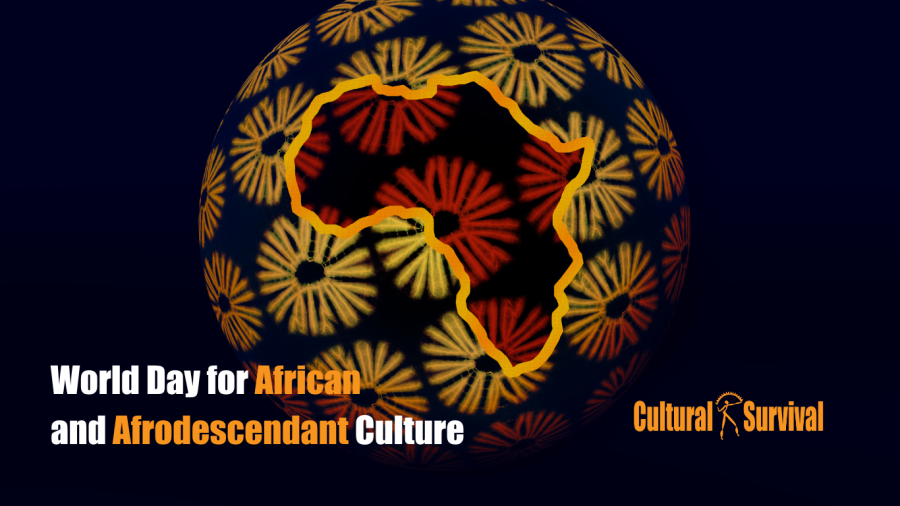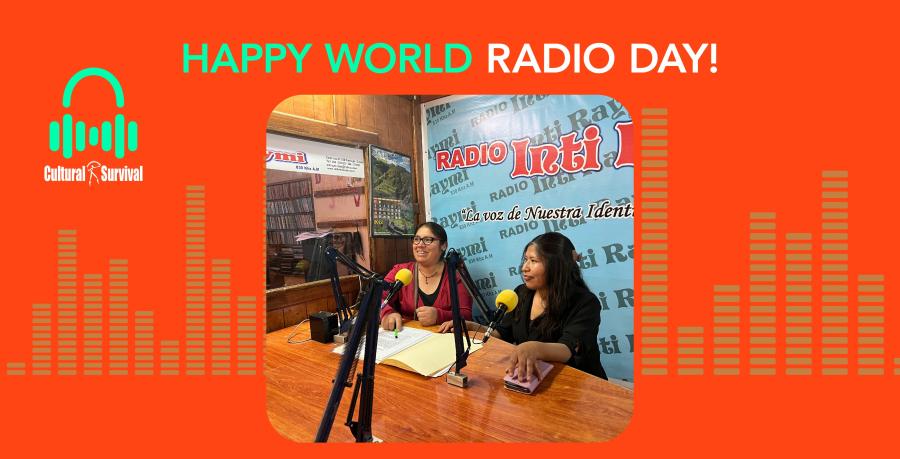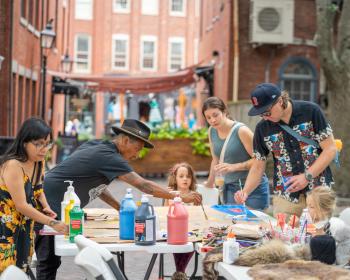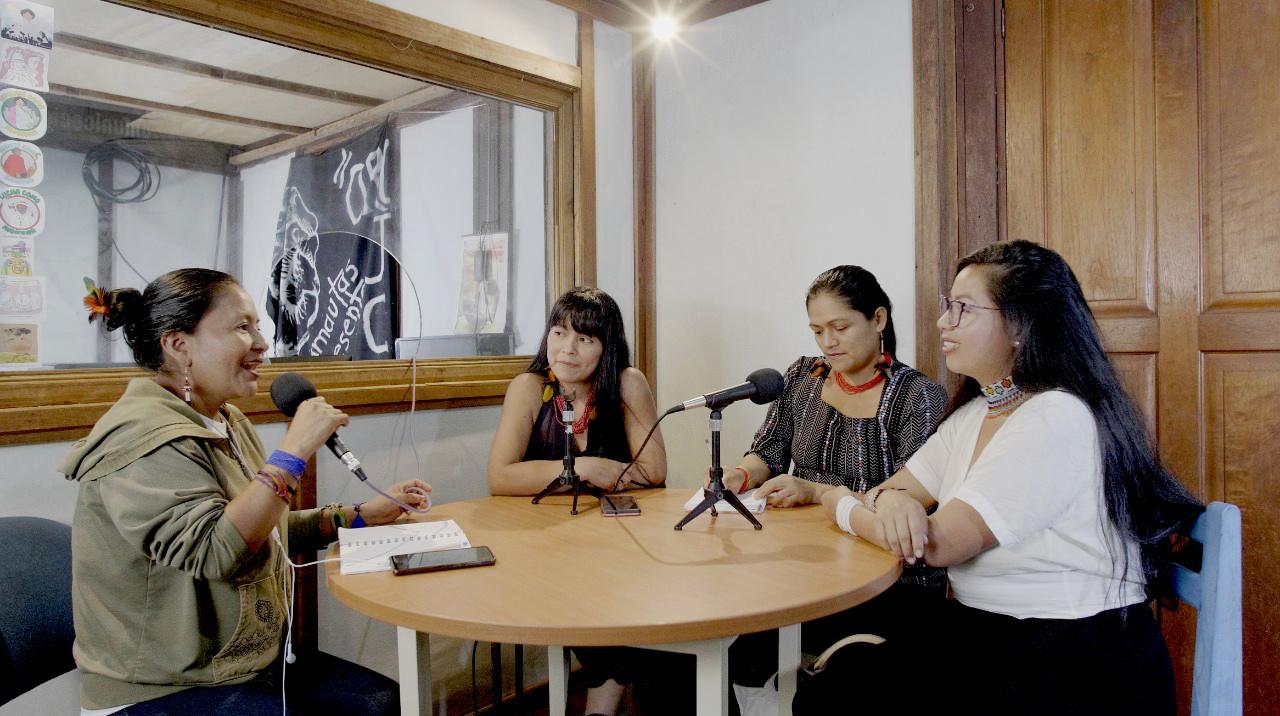
Cultural Survival is pleased to announce the fifth round of grants from our Indigenous Community Media Fund. The Indigenous Community Media Fund strengthens international Indigenous community radio stations' broadcast infrastructure, systems, programming, and community advocacy. Ensuring that Indigenous communities have a viable and critical medium for the dissemination of news, community information, education, participation, and entertainment from their own perspectives, this Indigenous Led Fund enhances community efforts to establish and sustain Indigenous community-controlled media.
The partner organizations and radio stations were selected based on their work in strengthening the collaboration, leadership, participation, and organization of their communities, revitalizing Indigenous cultures, languages, histories, cosmologies, rights, and protecting ancestral territories, in addition to promoting the leadership of women communicators.
Eighteen grants were awarded in 11 countries ( Bangladesh, Nepal, Namibia, Mexico, Guatemala, El Salvador, Peru, Colombia, Ecuador, Kenya, and South Africa), totaling $104,748 to the following partners:
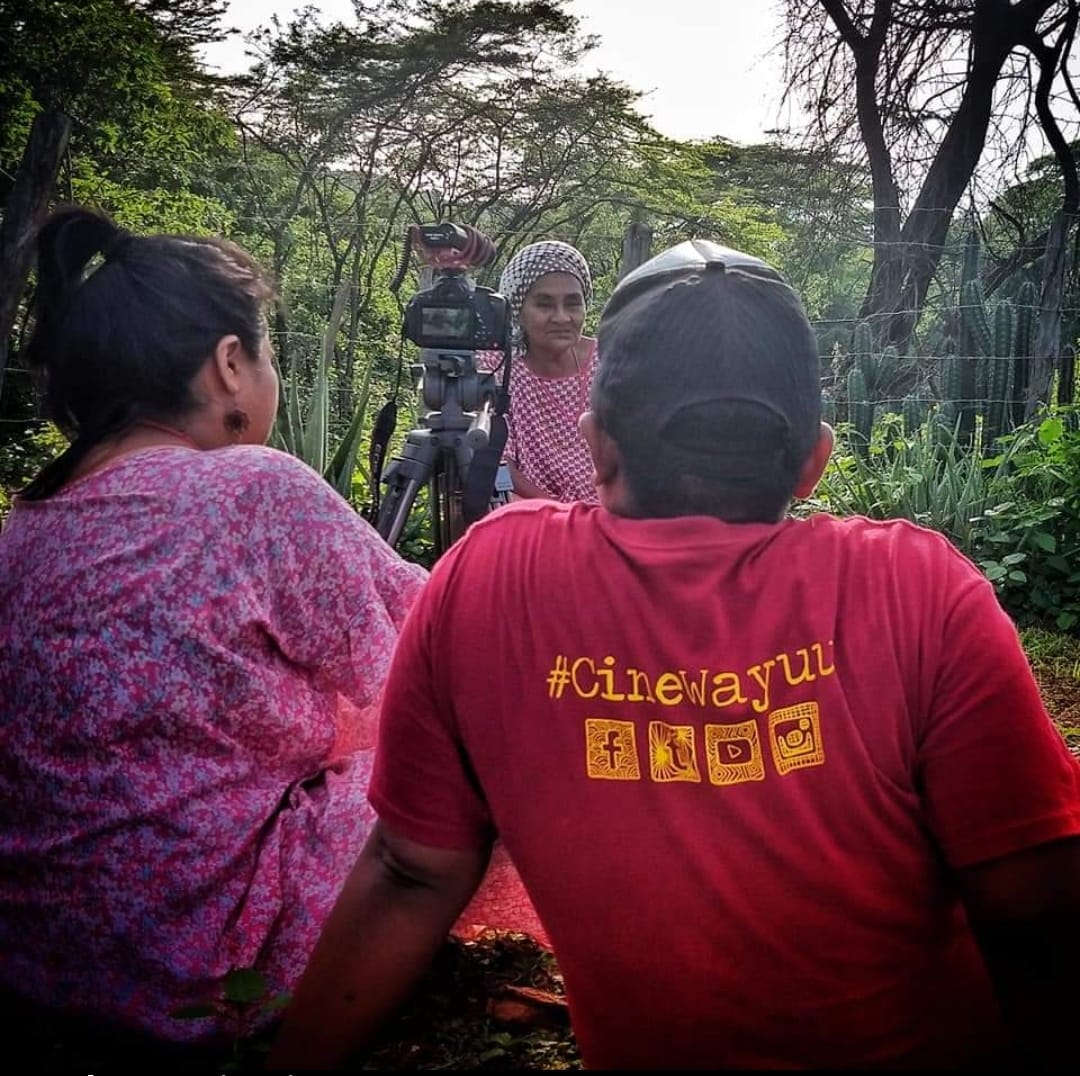
The Network of Communicators Wayuu Putchimaajana and Anakaa Films, Colombia (Wayuu Peoples)
This Network of Communicators Wayuu Putchimaajana is a strategic alliance between independent media, organizations, and journalists. Its purpose is to promote the visibility of the Wayuu People in different media and strengthen the community through the Wayuu School of Communications, WAYUULAB Indigenous Film Laboratory, MUCIWA Wayuu Film and Video Exhibition, the creation of audiovisual productions and sound, organization of training workshops and festivals for all audiences.
Their project, Saaniasian Jieyu Wayuu: Value of Wayuu Women, will strengthen the leadership of Wayuu women in the state department of La Guajira, through the training of ten young communicators in the area of radio production who will then join the Network and produce podcasts. The podcasts focus on the following themes: leaders and defenders of the territory; self-education in times of the pandemic; access to health; weaving; migration; and entrepreneurship of women.
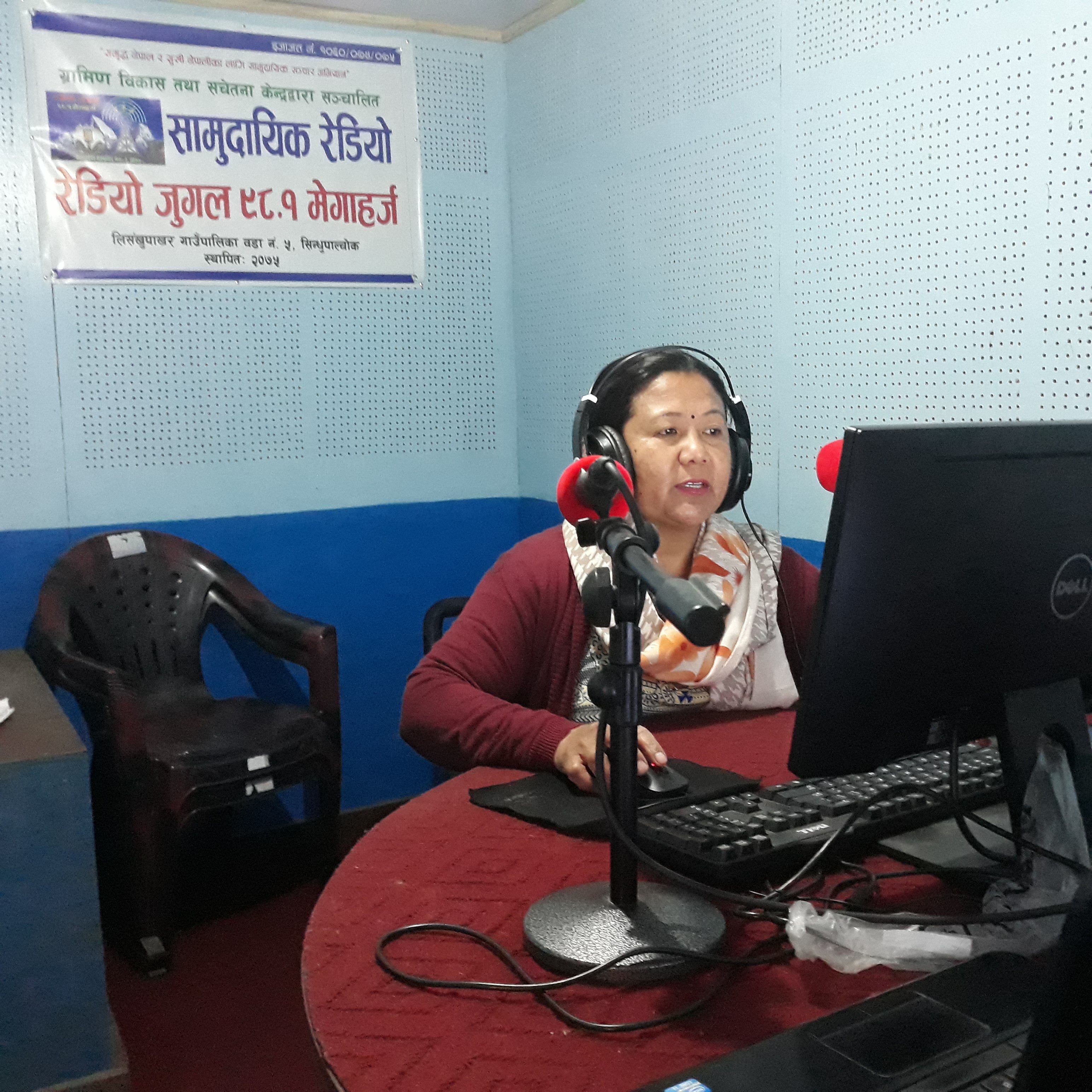
Radio Jugal, Nepal (Tamang and Hyolmo Peoples)
Radio Jugal, founded by Indigenous Tamang and Hyolmo communities, is the first radio station run by Indigenous women in the Sindhupalchok district in Nepal. This radio is the only one in the eastern part of the district. Before its establishment, there was no access to mass communication for the vast majority of Indigenous Peoples.
Recently, the Nepalese government implemented new laws and policies for Indigenous Peoples specifically contesting that the budget designated for Indigenous communities would be administered through local governments. Therefore, the project, Media Advocacy on Local Government’s Laws and Policies Related to Indigenous Peoples Rights Promotion, through training programs, such as the interaction of leaders and local government and the production and transmission of 12 radio programs will focus on Indigenous Peoples’ rights and local government laws and policies.
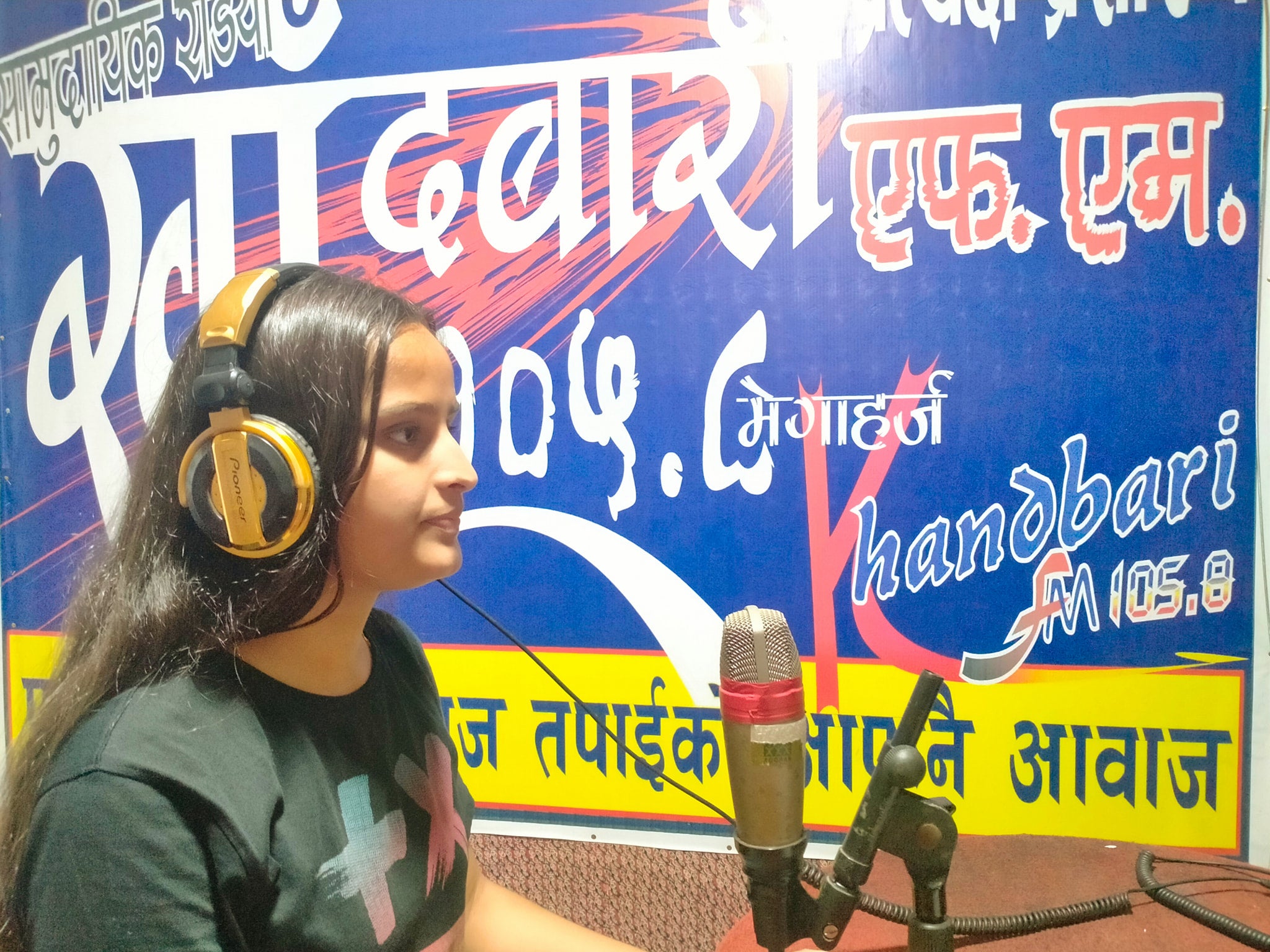
Community Radio Khandbari FM Sankhuwasava, Nepal (Rai, Yakkha, Kulung, Limbu, Chettri, Tamang, Sherpa, Gurung Peoples)
Khandbari FM Sankhuwasava Community Radio is located in Sankhuwasava, a very remote district in the Nepali Himalayas. The goal of the station is to inform, educate and empower the population of Sankhuwasava on issues related to their human rights, Indigenous cultures, equality, ILO 169, and rule of law.
As part of their project, Community Radio Khandbari FM Sankhuwasava, will replace much needed radio equipment, organize training for both women and men journalists at the local and regional level, produce and broadcast five Public Service Announcements, produce weekly programs in two Indigenous languages of the region, and focus on providing opportunities for local and regional journalists to better understand Indigenous Peoples’ rights and international human rights mechanisms.
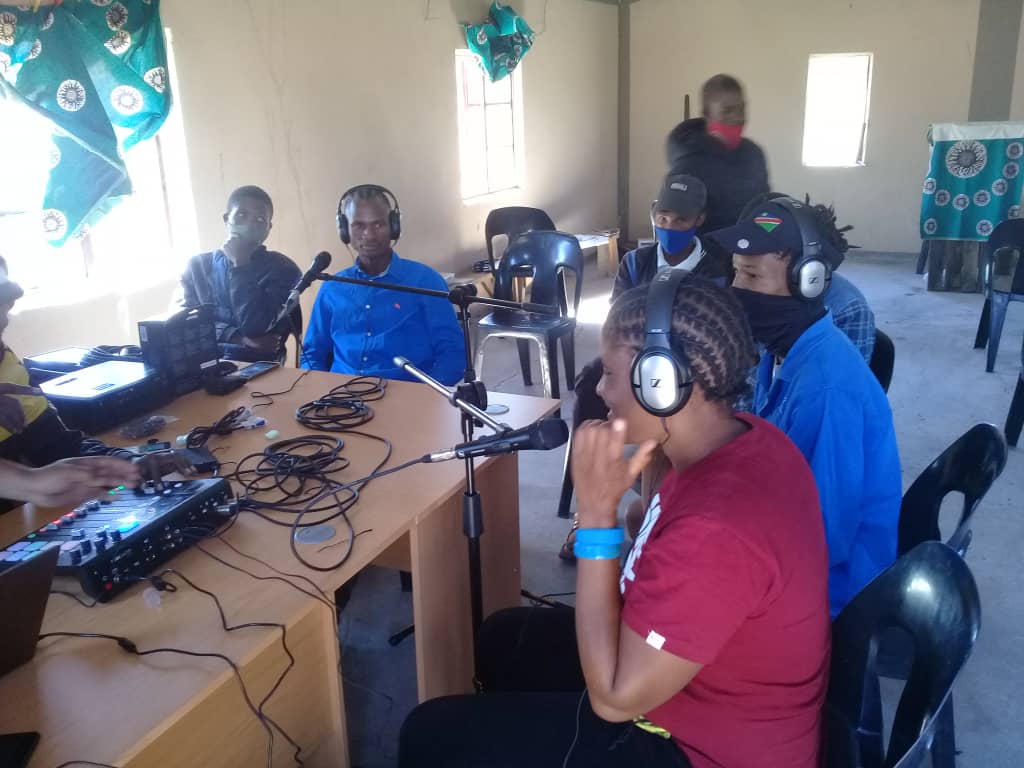
Khwe Indigenous Community Radio and Natural Justice, Namibia (Khwe Peoples)
Khwe Indigenous Community Radio promotes traditional ways of life through continuous storytelling and the exchange of important information in the Khwedam language. Through trainings for youth and women by a specialist from South Africa, radio equipment will be installed and radio staff will participate in capacity building activities. Khwe Indigenous Community Radio will be a medium for the transmission of the language, knowledge, practices, and ancestral wisdom of the Khwe Peoples. It will teach the members of the community the indisputable connection that exists between the land and the environment.
Natural Justice, is serving as a fiscal sponsor for Khwe Indigenous Community Radio Station and is a nonprofit organization of legal experts who specialize in human rights and environmental law and work towards enhancing the collective rights of individuals and protecting the sacred relationships of Indigenous Peoples to nature. Natural Justice will spend time with members of the newly-formed station to ensure the success of the project.
Radio Riverside, South Africa (San Peoples)
Radio Riverside is a San community radio station in Upington in Northern Cape, South Africa. It broadcasts in Afrikaans, English, Setswana, and IsiXhosa 20 hours a day to an audience of 92,000 people. Their project, N/uu Language Preservation, will create a N/uu language dictionary to document the language which has very few speakers left in the region. One of the Elders, Ouma Katrina, and her daughter, will collaborate with the radio station on this project. In addition, they will provide N/uu language classes via radio.
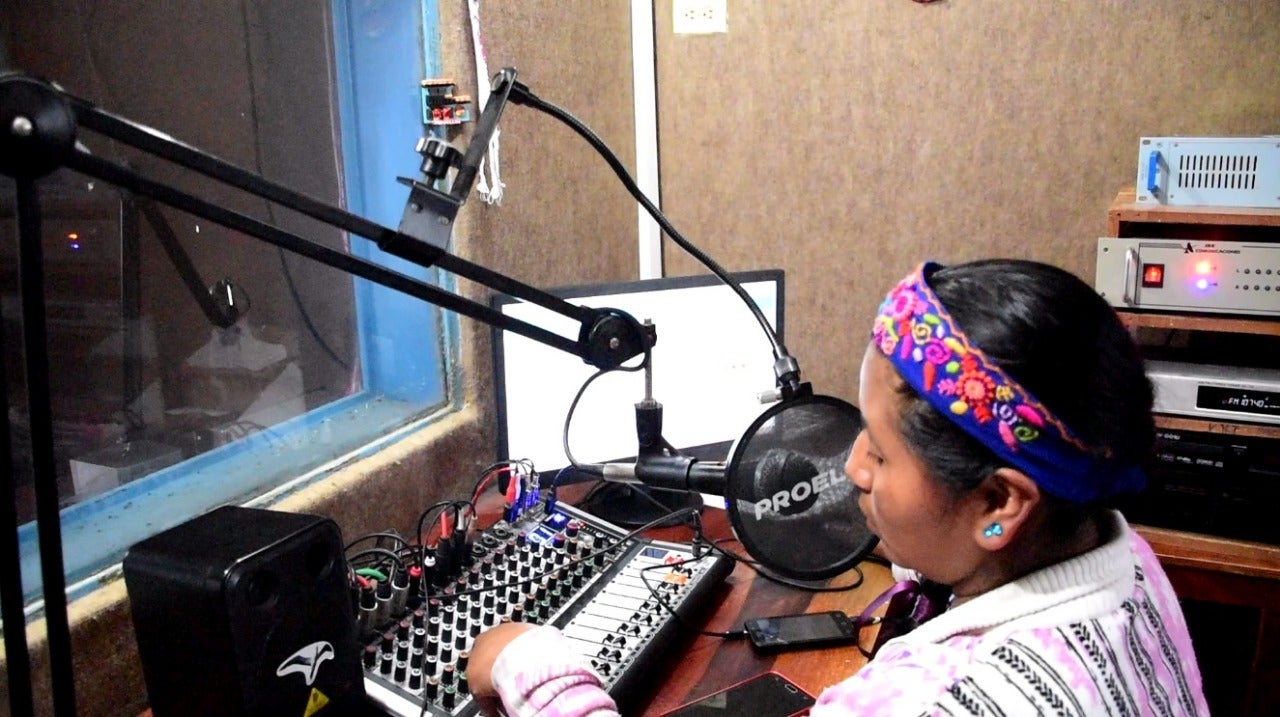
Voices of Our Land Station, Colombia (Naza Peoples)
The Voices of Our Land Radio belongs to the Naza Peoples and the Indigenous Council of the Jambaló territory in Colombia. Their project, Strengthening the Roots with Mother Earth, will organize radio production and scriptwriting workshops. They will encourage women and youth of the territory to think, reflect, analyze and be the ones that prioritize the issues they want to address. They will then investigate the topics identified collectively, and make educational radio productions to bring awareness to the issues.
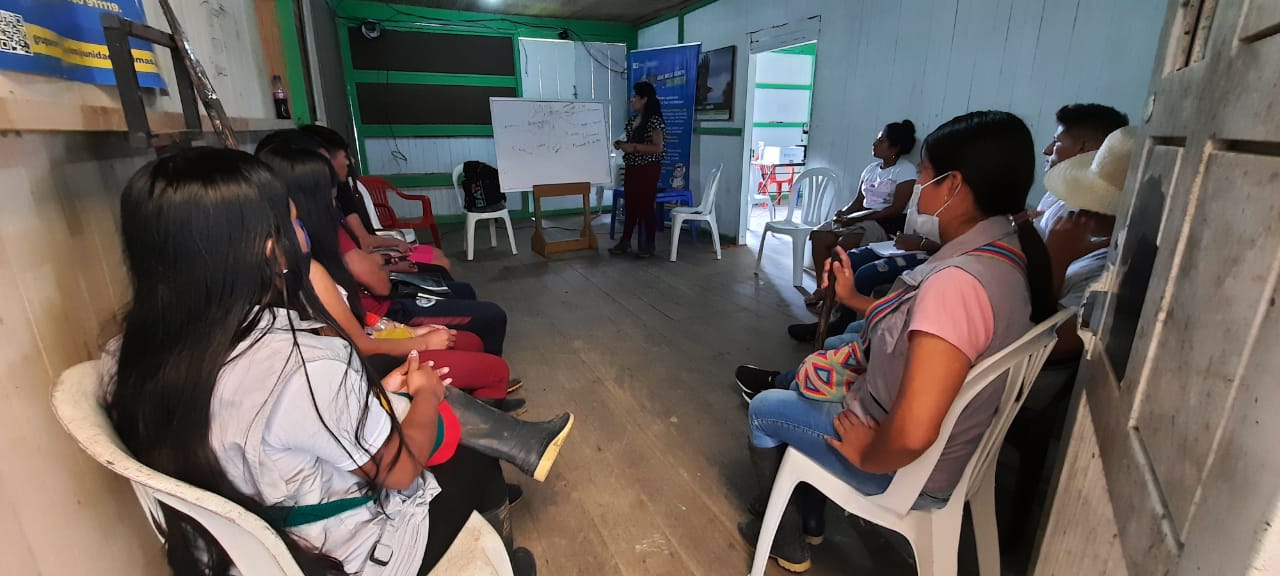
Awá School of Communication and the Voices of the Awá Station, Colombia (Awa Peoples)
The Awá School of Communication offers Awá youth training in communication from Indigenous and western perspectives. The Voices of the Awá Radio aims to build memory, revitalize oral tradition, revitalize the Awapit language, and strengthen organizational and political processes.
Their project, Weaving Words and Ancestral Thoughts through Radio, will work to create youth radio groups, organize training processes in radio production, and will produce three radio series and three meetings between the existing networks. Through these actions, they promote the Awapít language, the Awá cosmology, and the protection of their territory.
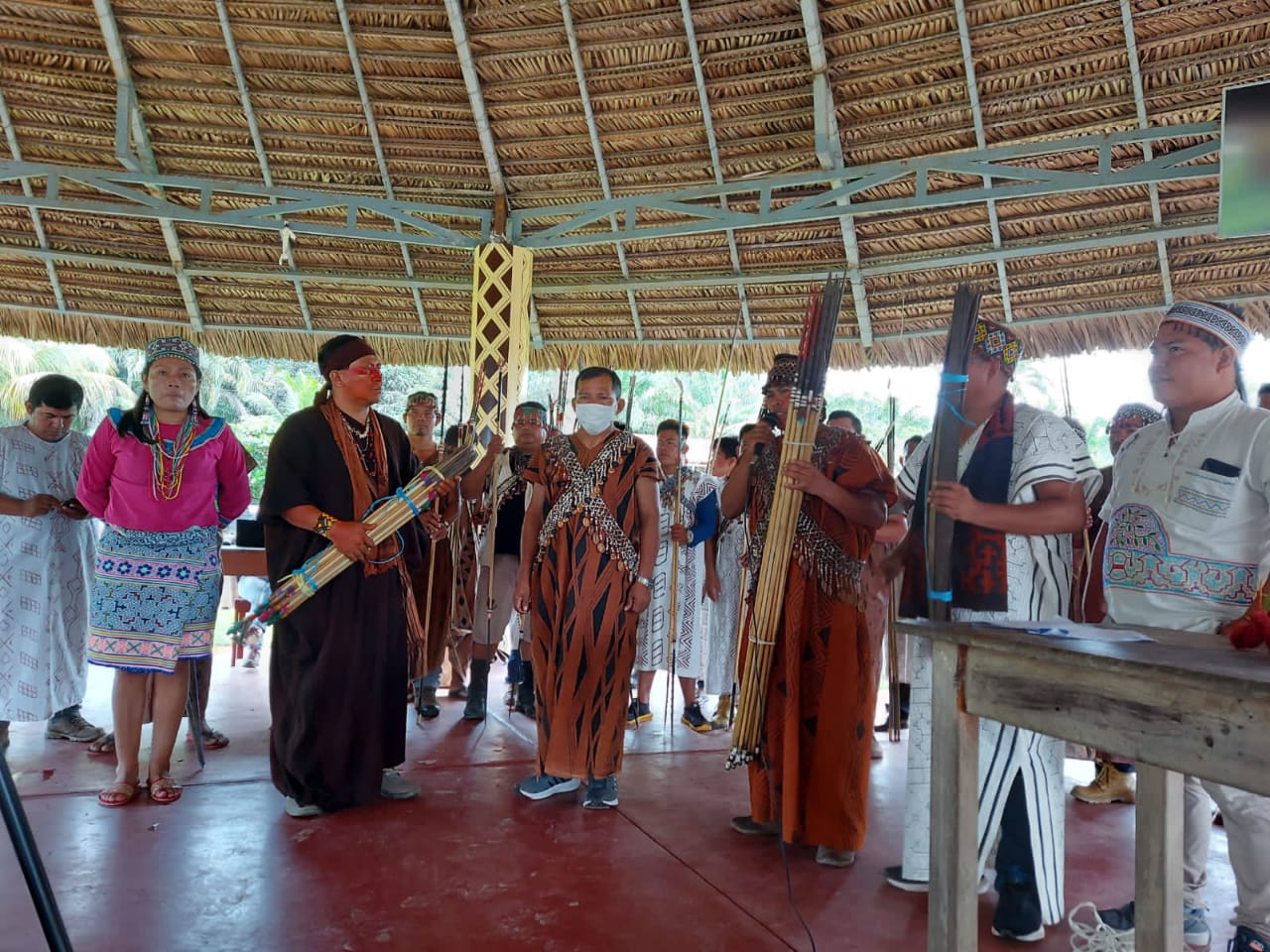
The Federation of Native Communities of Kakataibo - FENACOKA, Peru (Kakataibo Peoples)
The Federation of Native Communities of Kakataibo (FENACOKA) is a grassroots umbrella organization of eight Indigenous communities and two annexes of the Kakataibo Peoples.
Their project, Strengthening Radio Communication, the Organization and the Struggles of the Kakataibo Peoples, will implement workshops aimed at youth and women on radio production, interculturality, gender, and Indigenous rights. They will acquire radio equipment and organize a network of communicators for the exchange of information between the communities and the Federation, strengthening the processes of organization and mobilization.
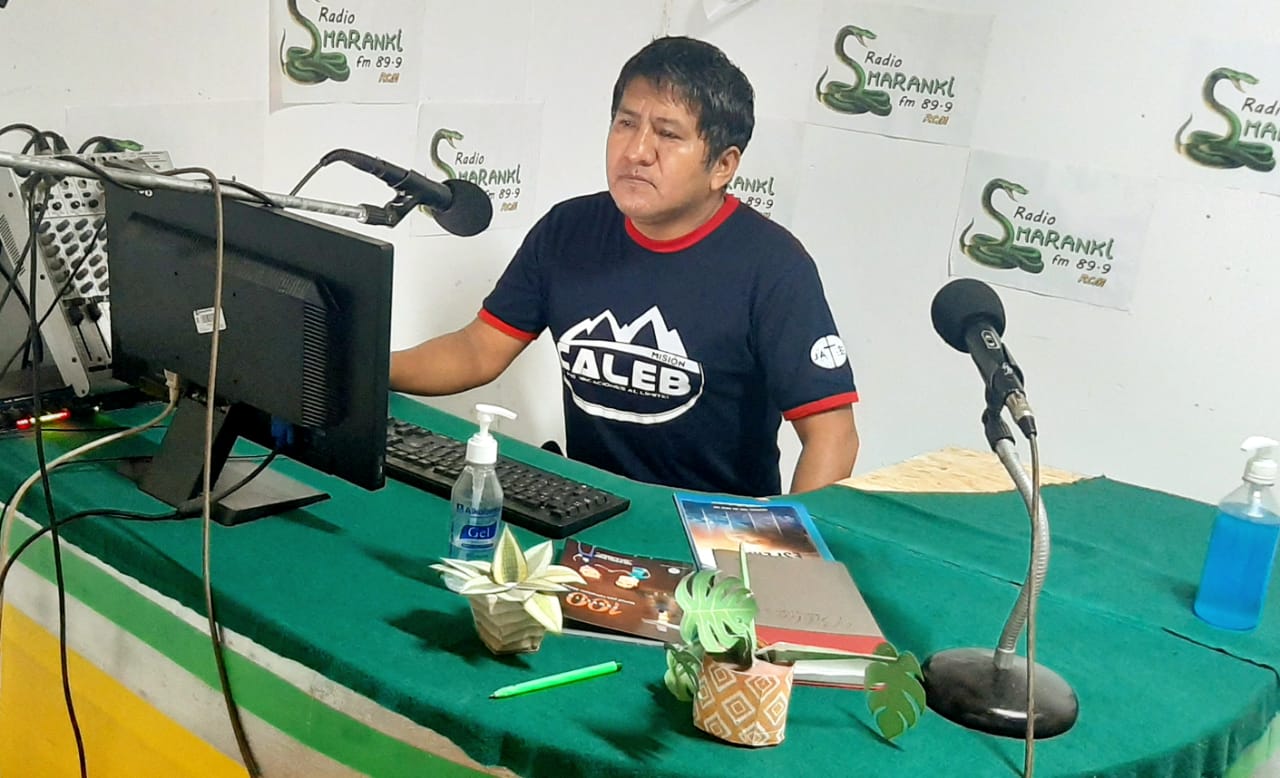
Maranki Radio, Peru (Ashéninka Peoples)
Maranki Radio aims to strengthen the cultural identity of the Ashéninka Peoples and promote educational, social, and cultural spaces that generate recognition and appreciation of their cultural and linguistic diversity.
Their project, Strategic Strengthening of Maranki Community Radio, will improve radio equipment, create a digital library, and organize a training program aimed at young men and women in new technologies. The station will provide programs of interest to local Indigenous communities in their native language.
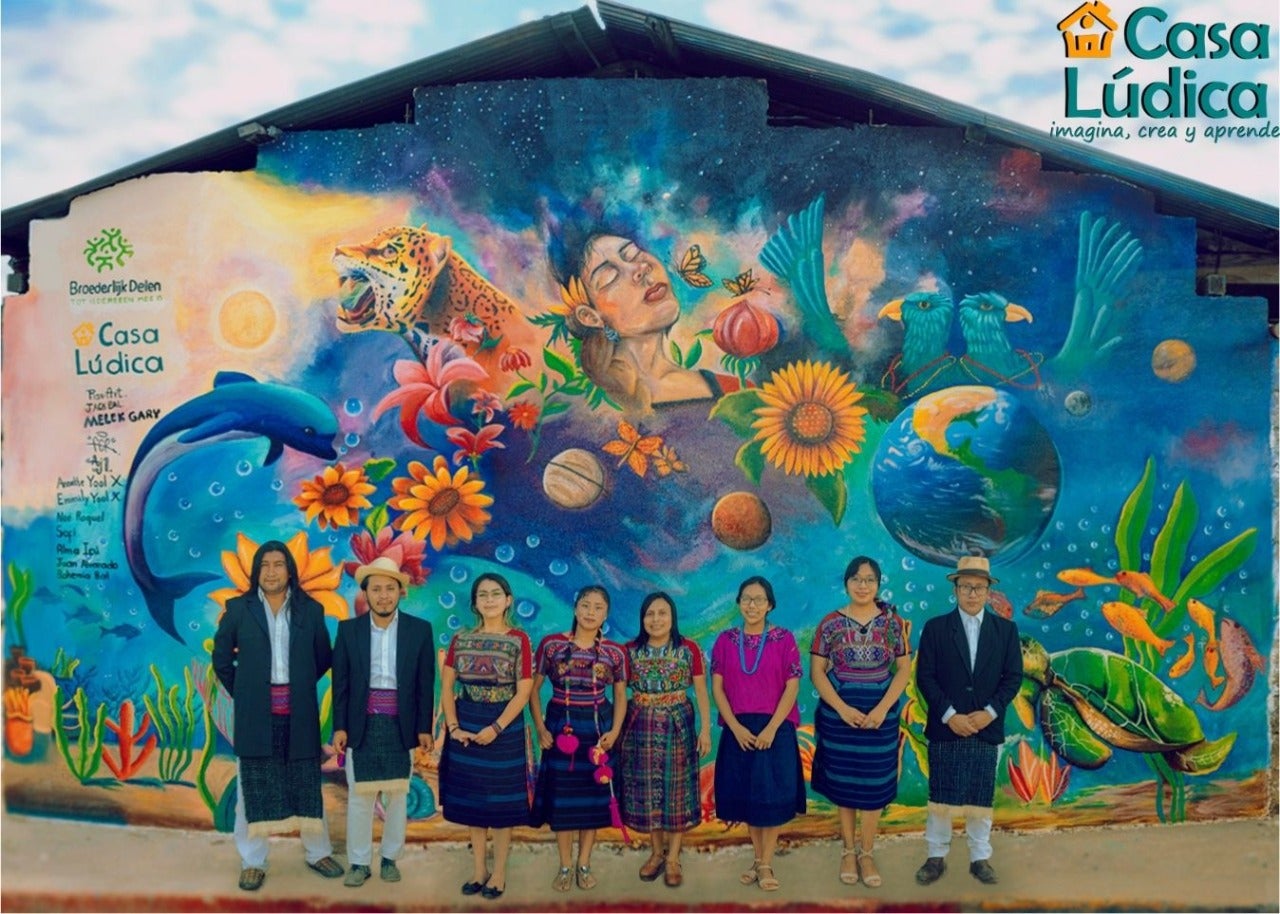
Lúdica Chi Xot House, Guatemala (Kaqchikel Peoples)
Lúdica Chi Xot House is a space for training, meeting, and dialogue for youth in Comalapa (ChiXot). Their project, PAXOTfm Podcast Radio, will produce 13 episodes in the Kaqchikel language as homage to the history, language, life, identity, and collective memory of the Maya Kaqchikel Peoples of ChiXot.
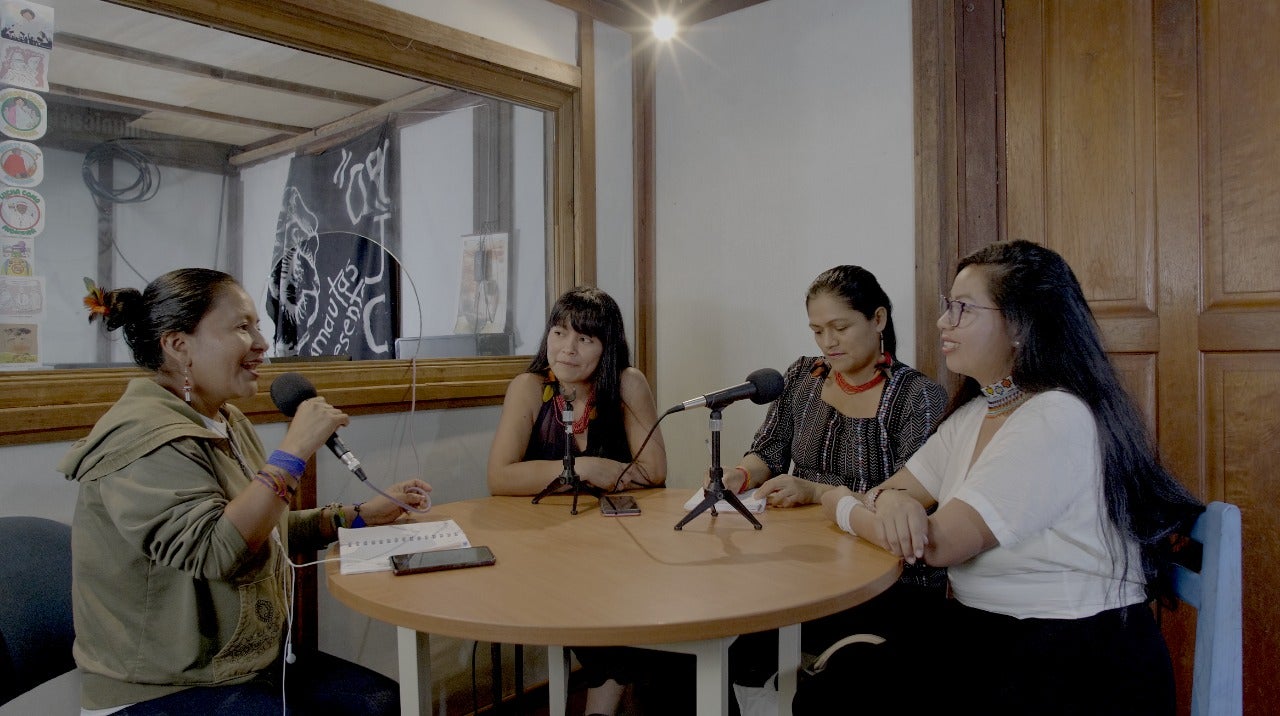
The Voice of CONFENIAE and Remando, Ecuador (Kíchwa and Achwar Peoples)
“Remando” is a radio program promoted by a group of Kíchwa and Achwar women from the Ecuadorian Amazon, created at the Voice of CONFENIAE Radio. It is also part of Ciber Amazonas, a network of communicators of Amazonía: women from Peru, Ecuador, Brazil, and Colombia who use microphones, cameras, and digital technology to document the situations they live in and face such as land encroachments and cultural and gender violence.
Their project, “Remando" - Radio Program of Indigenous Women of the Ecuadorian Amazon, will broadcast live and retransmit programs, produce a series of reports and interviews, strengthen the organization, uplift the voices and struggles of Amazonian women, as well as sensitize the male population to the needs of women. Above all, the project will involve young women in communications and community radio.
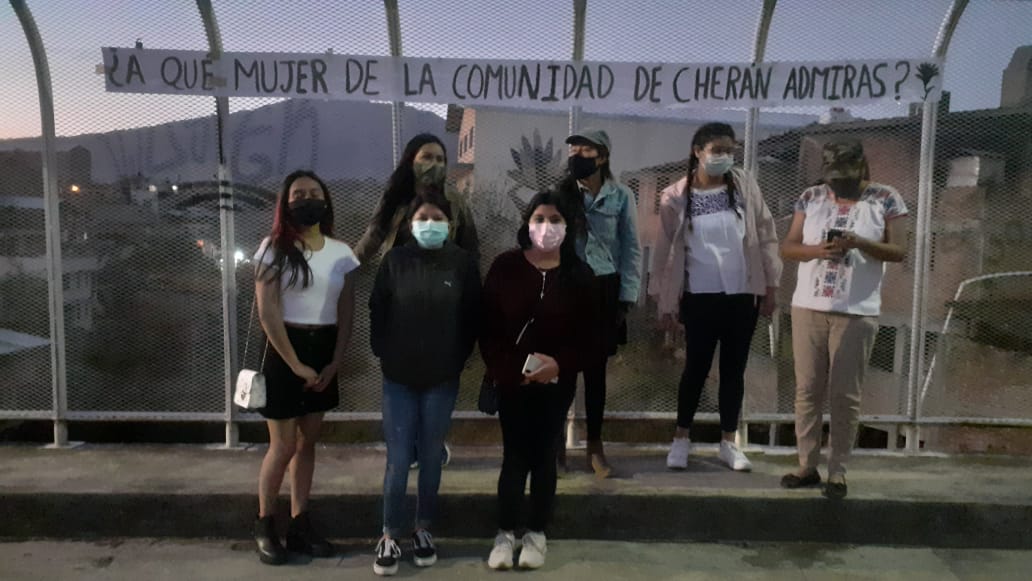
Radio Fogata, México (P’urhépecha Peoples)
Radio Fogata serves as a community medium to revitalize P’urhépecha culture, knowledge, and cosmology. Their project, P'urhépecha Women in Radio; For the Defense of Life and Territory, will use body-territory mapping methodologies and document the life stories of 15 young Cheran women, organizing trainings in radio pre-production, production, and post-production for 15 community members, equip Radio Fogata with basic equipment. Their aim is to uplift Purépecha women as political and social transformation agents in the defense of the territory (forests) and communal goods, in the revitalization of ancestral knowledge and language. The station is promoting women’s leadership in political advocacy spaces.
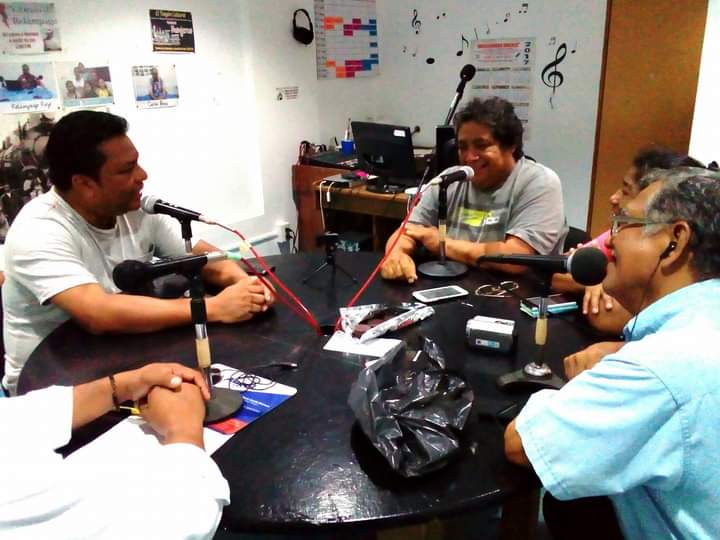
The Voices of the Peoples Radio, México (Ayuujk-Zapoteco Peoples)
Voices of the Peoples Radio’s objective is to raise awareness among women and men about the various environmental, social, cultural, and economic problems that exist, and it serves to be an instrument of struggle that gives a voice to the Peoples of the isthmus of Tehuantepec, Oaxaca for the defense of their rights.
Their project, Voices of the Isthmus in Resistance, will produce informative radio programs about the negative, environmental, economic, social, and cultural impacts around the Istmo Transistmico Corredor Megaproject. The programs will inform communities about this and other megaprojects in the area to better defend their land, environmental, economic, social, and cultural rights.
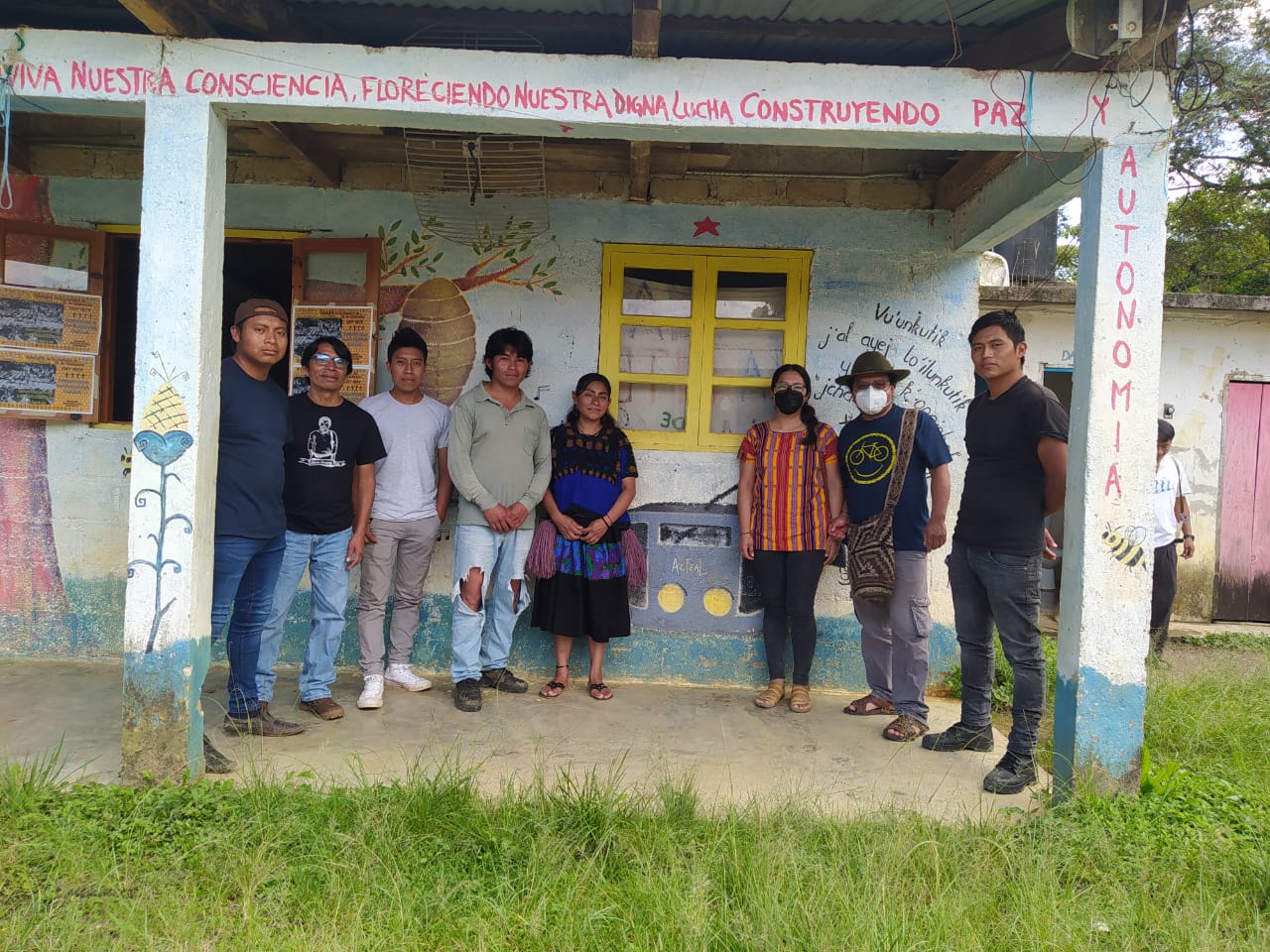
The Bees of Acteal Civil Society and Radio Almantal Yu'un Lekilal - Messenger of Peace, México, (Tsotsil Peoples)
The Bees of Acteal and Radio Almantal Yu'un Lekilal belong to three communities in different municipalities in the Los Altos of Chiapas (Chenalhó, Pantelhó, and Simojovel). Currently, the radio station is made up of men and one woman. Its mission is to keep the communities informed, promote Indigenous cultures, strengthen the fight for peace, justice, and autonomy.
Their project, Strengthening the Messenger of Peace Radio, will organize a series of 18 workshops, and a final meeting with young Tsotsil women and men on technical skills in radio equipment. They will train new members in radio production, voice-over, recording, editing, as well as the maintenance and care of radio equipment.
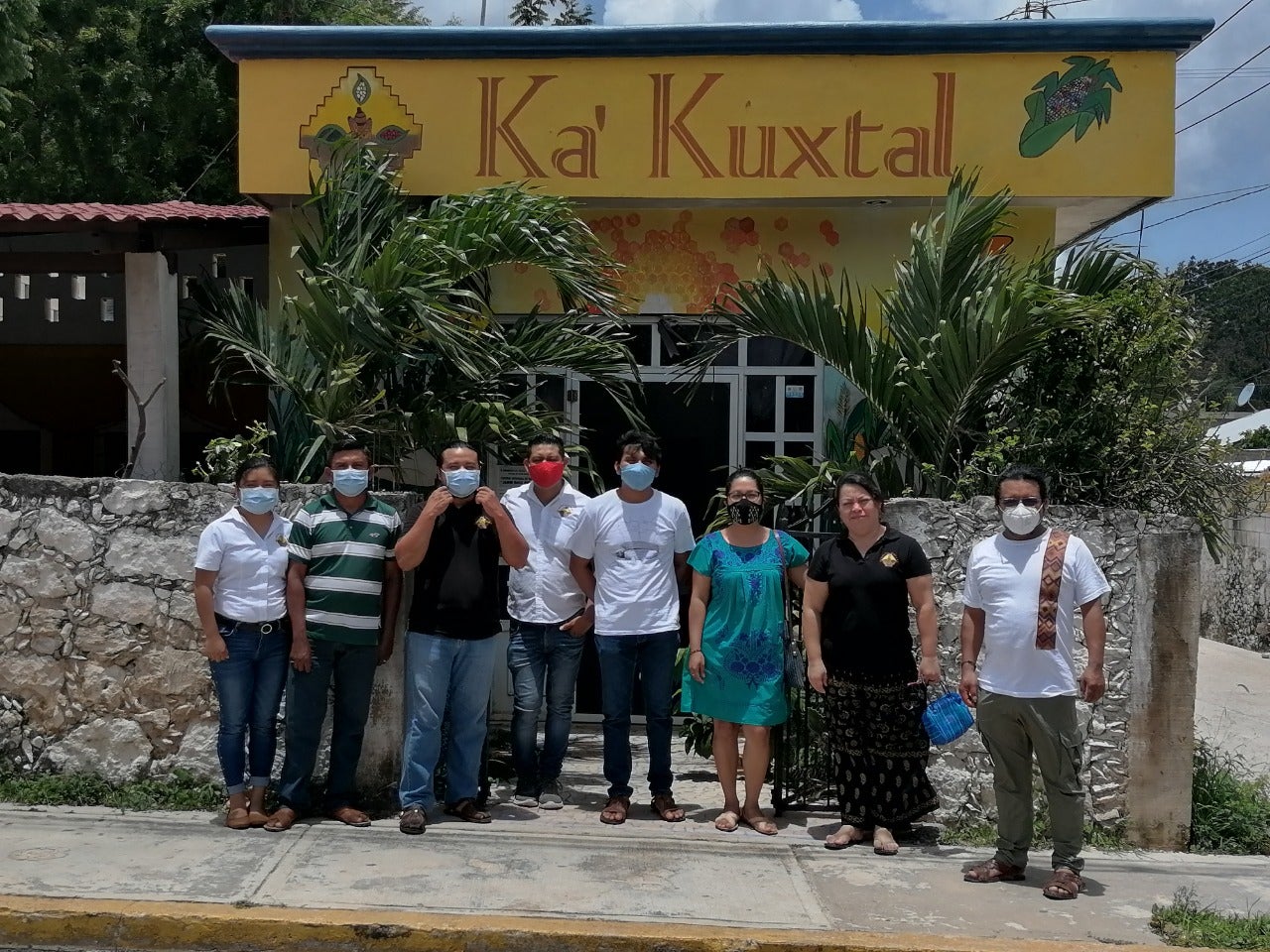
Ka Kuxtal Much Meyaj A.C. and Radio Chenes, México (Maya Peoples)
Ka Kuxtal Much Meyaj A.C. is an organization of Mayan women and men from 10 different communities in the Chenes, Hopelchén, Campeche region. Their mission is to build community while improving the educational, economic, health, and communication conditions of local Maya people towards autonomy and self-determination.
Their project, Impulse to the Consolidation of Radio Chenes, will establish a community radio station to keep the Chene community informed about issues such as land defense, community life, collective rights in their own language. They will especially focus on megaprojects such as the so-called “Mayan Train,” which will alter the economic, social, and cultural dynamics of local Indigenous communities and through the use of excessive agrochemicals, hybrid and transgenic seeds, which will displace native seeds and have adverse effects on the health of local people.
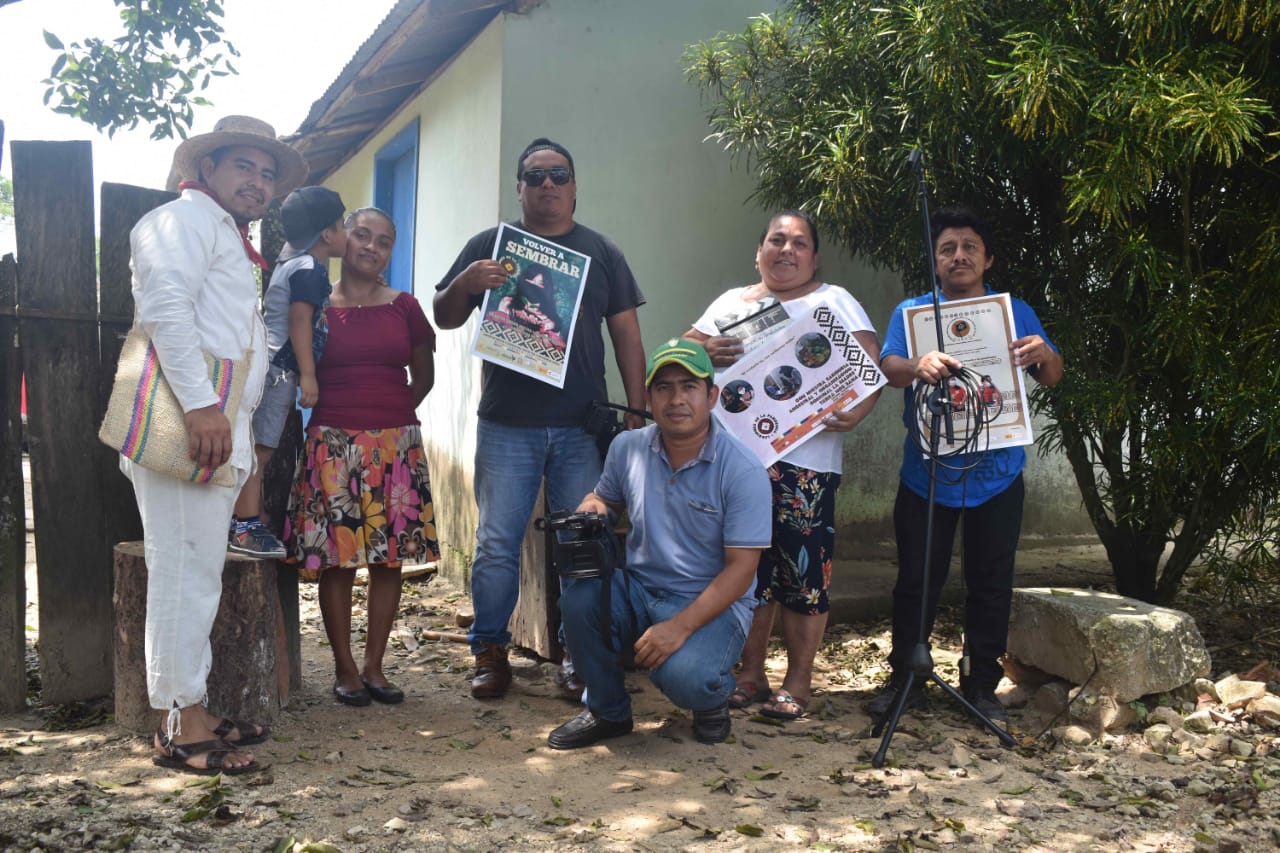
Tseltal Bachajón Communication, México (Tseltal and Chol Peoples)
Tseltal Bachajón Communication’s mission is to promote the rights of Indigenous Peoples, the recognition of cultural identity, and the defense of life, land, and territory. It also seeks to promote the active participation of women and use media as an instrument of depatriarchalization and decolonization.
Their Tseltal / Chol Indigenous Radio Community Project, will establish a new Indigenous community radio station, organize workshops for Chol and Tseltal women and men on technical skills, produce five radio programs in Indigenous languages of the region and Spanish and produce seven radio programs on climate change, land, health, gender, the COVID-19 pandemic, as well as communicate the needs of the Tseltal and Ch'ol Peoples. The project will provide access to information to Indigenous communities, create a space for people to exercise their rights to manage their own media, disseminate news and information that promotes cultural identity, organizational and political processes, and gender equality,
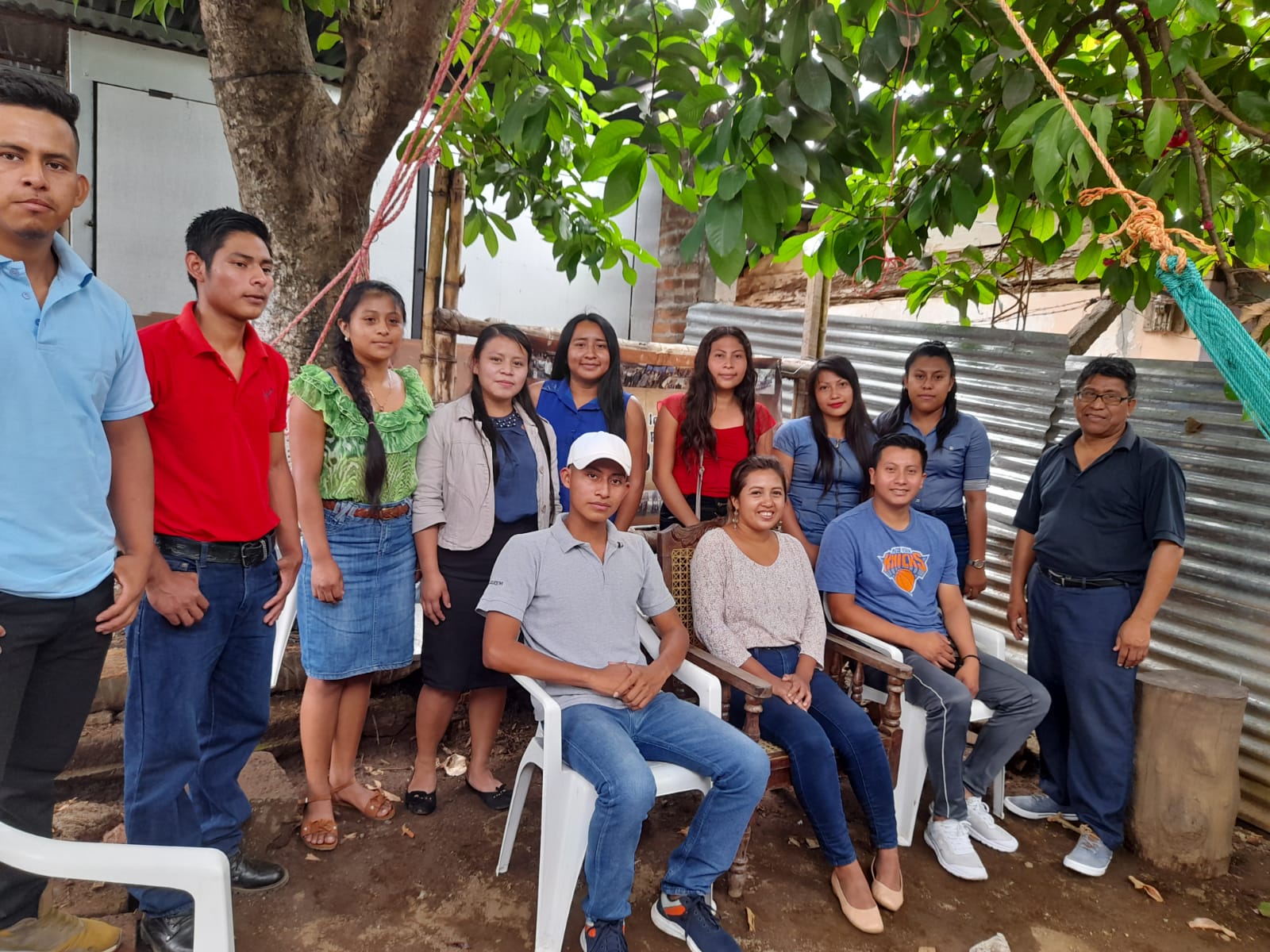
Cital Community Digital TV Radio, El Salvador (Nahuat Pipil Peoples)
Cital Community Digital TV Radio is a digital community radio station run by young Indigenous volunteers who value democracy and participation and seek to create common welfare through sharing information, entertainment, and education services in the Nahuatl language and rooted in ancestral Nahuat knowledge.
Their project, CITAL COMMUNITY DIGITAL TV RADIO, aims to train groups of youth from different Indigenous communities of Nahuizalco-Salcoatitán, Izalco, Juayúa, and Santa Catarina Masahuat, in the production of digital community radio. Their aim is to revitalize traditions, especially the Nahuatl language, territory, land, environment, and to promote knowledge of Indigenous rights.
Radio Rendille, Kenya (Rendille Peoples)
Radio Rendille is a new community radio initiative for Rendille Peoples located in Marsabit County, Kenya. The population of this pastoralist Tribe numbers approximately 90,000 people with nine clans. Their project will support their first steps towards organizing a radio station of their own by obtaining a radio license and developing the capacities of a new team through internships at other community radio stations in Kenya. This project is co-funded with Cultural Survival’s partner WACC.
